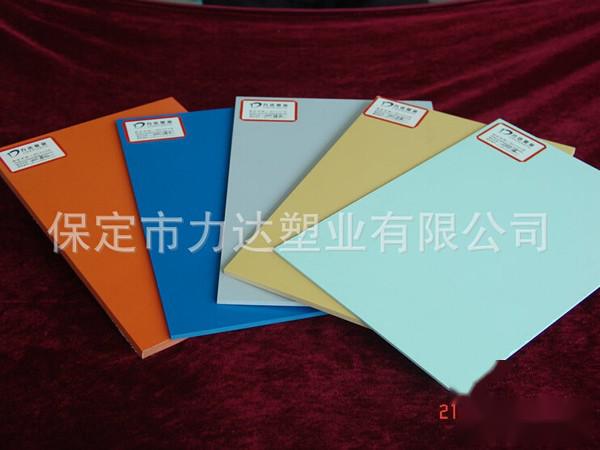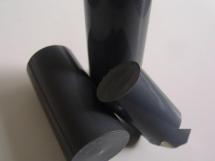Length: 57(m) Manufacturer: Baoding Lida Thickness: 22(mm)
Weight per piece: 1.5(kg) Application: Mechanical and electronic anti-corrosion chemicals Width: 1.5(m)
PVC boards possess excellent chemical stability, corrosion resistance, high hardness, high strength, UV resistance (aging resistance), flame retardancy (self-extinguishing), reliable insulation performance, smooth and flat surface, non-absorbent and non-deformable, and easy to process.
(1) Knowledge about PVC boards: PVC plastic board knowledge:
Hard PVC board: This PVC plastic board product is generally gray or white, and can also be produced in various colors based on customer needs. Its colors are bright and aesthetically pleasing. The product quality meets GB/T4454-1996, with good chemical stability, corrosion resistance, high hardness, high strength, UV resistance (aging resistance), flame retardancy (self-extinguishing), reliable insulation performance, smooth and flat surface, non-absorbent, non-deformable, and easy to process. This product is a superior thermoforming material that can replace some stainless steel and other corrosion-resistant synthetic materials, and is widely used in chemical, petroleum, electroplating, water purification treatment equipment, environmental protection equipment, mining, pharmaceuticals, electronics, communications, and decoration industries.
(2) Advantages of PVC plastic boards include the following aspects:
1. PVC boards are lightweight, thermal insulating, moisture-proof, flame-retardant, acid and alkali resistant, and corrosion-resistant.
2. PVC board stability and dielectric properties are good, durable, aging-resistant, and easy to weld and bond.
3. PVC board surfaces are smooth, colorful, and highly decorative, with a wide range of decorative applications.
4. PVC boards can be easily processed and formed through techniques such as kneading, mixing, drawing, cutting, extrusion, or die-casting to meet various profile specifications.
5. The construction process is simple, and installation is relatively convenient.
6. PVC plastic boards have strong bending strength and impact toughness, and exhibit high elongation when breaking. PVC boards are widely used in chemical, environmental protection, electroplating, electronics, food, decoration, pharmaceuticals, and other industries, such as manufacturing and installing chemical plastic containers, anti-corrosion processing of equipment, and water treatment projects.
(3) Reasons for selecting PVC boards (PVC plastic boards) for acid and alkali resistant equipment.
Chemical and physical properties
1. Rigid PVC is one of the most widely used plastic materials. PVC material is a non-crystalline material.
2. PVC materials often contain stabilizers, lubricants, processing aids, colorants, impact modifiers, and other additives in actual use.
3. PVC materials have non-flammability, high strength, weather resistance, and excellent geometric stability.
4. PVC has strong resistance to oxidizers, reductants, and strong acids. However, it can be corroded by concentrated oxidizing acids such as concentrated sulfuric acid and concentrated nitric acid, and is unsuitable for contact with aromatic hydrocarbons and chlorinated hydrocarbons.
5. The melting temperature of PVC during processing is a very important process parameter; improper control can lead to material decomposition.
6. PVC has relatively poor flow characteristics, and its processing range is very narrow. Especially high molecular weight PVC materials are more difficult to process (this material usually requires the addition of lubricants to improve flow characteristics), thus low molecular weight PVC materials are typically used. PVC has a relatively low shrinkage rate, generally between 0.2% and 0.6%.
PVC boards, PVC plastic boards have good acid and alkali resistance, flame retardancy, and processability, making them widely used in various industries for making acid and alkali resistant ducts, specifically in industries such as electroplating, chemical, electronics, and water treatment.













